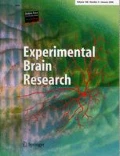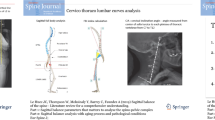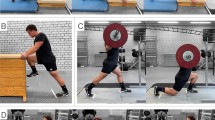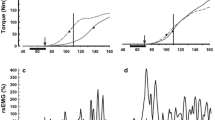Abstract.
Changes in trunk muscle recruitment have been identified in people with low-back pain (LBP). These differences may be due to changes in the planning of the motor response or due to delayed transmission of the descending motor command in the nervous system. These two possibilities were investigated by comparison of the effect of task complexity on the feedforward postural response of the trunk muscles associated with rapid arm movement in people with and without LBP. Task complexity was increased by variation of the expectation for a command to either abduct or flex the upper limb. The onsets of electromyographic activity (EMG) of the abdominal and deltoid muscles were measured. In control subjects, while the reaction time of deltoid and the superficial abdominal muscles increased with task complexity, the reaction time of transversus abdominis (TrA) was constant. However, in subjects with LBP, the reaction time of TrA increased along with the other muscles as task complexity was increased. While inhibition of the descending motor command cannot be excluded, it is more likely that the change in recruitment of TrA represents a more complex change in organisation of the postural response.
Similar content being viewed by others
Author information
Authors and Affiliations
Additional information
Electronic Publication
Rights and permissions
About this article
Cite this article
Hodges, P.W. Changes in motor planning of feedforward postural responses of the trunk muscles in low back pain. Exp Brain Res 141, 261–266 (2001). https://doi.org/10.1007/s002210100873
Received:
Accepted:
Issue Date:
DOI: https://doi.org/10.1007/s002210100873




